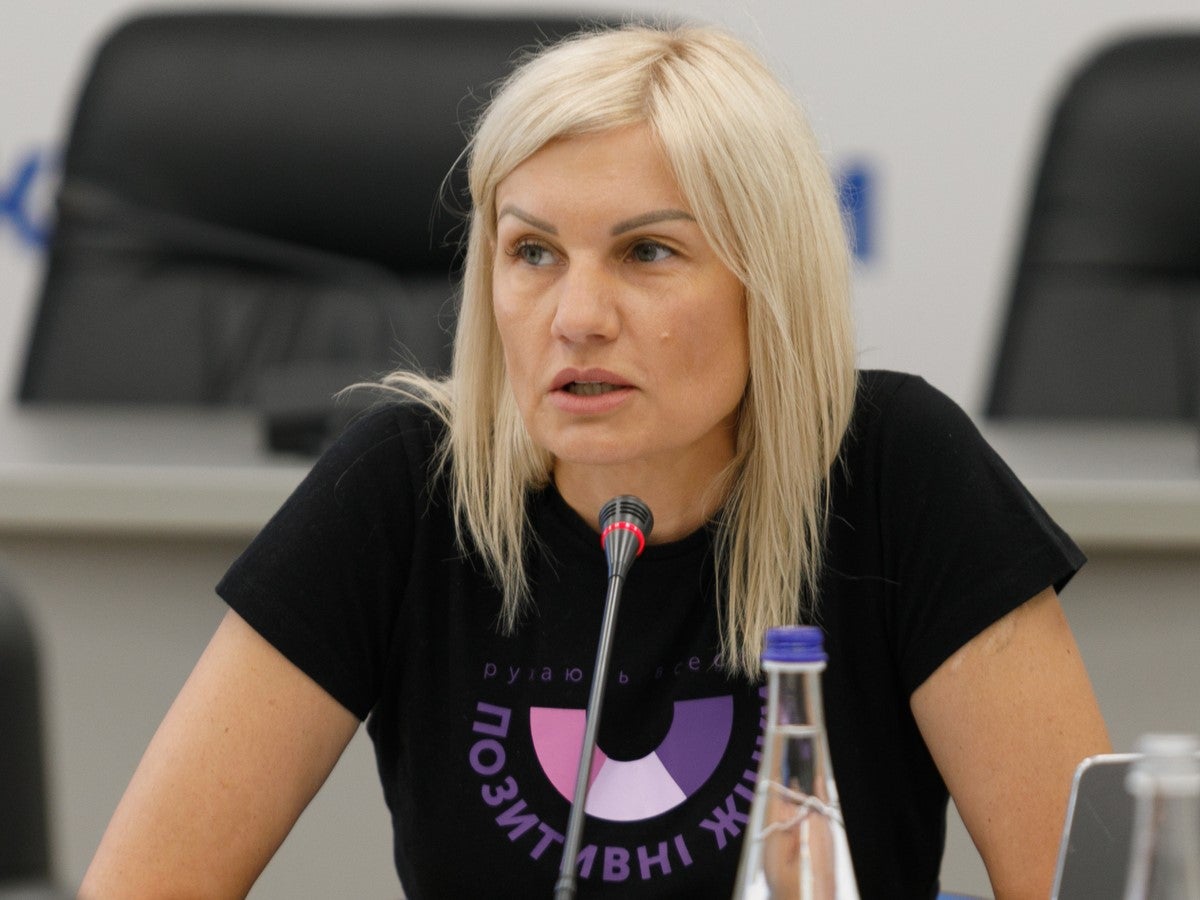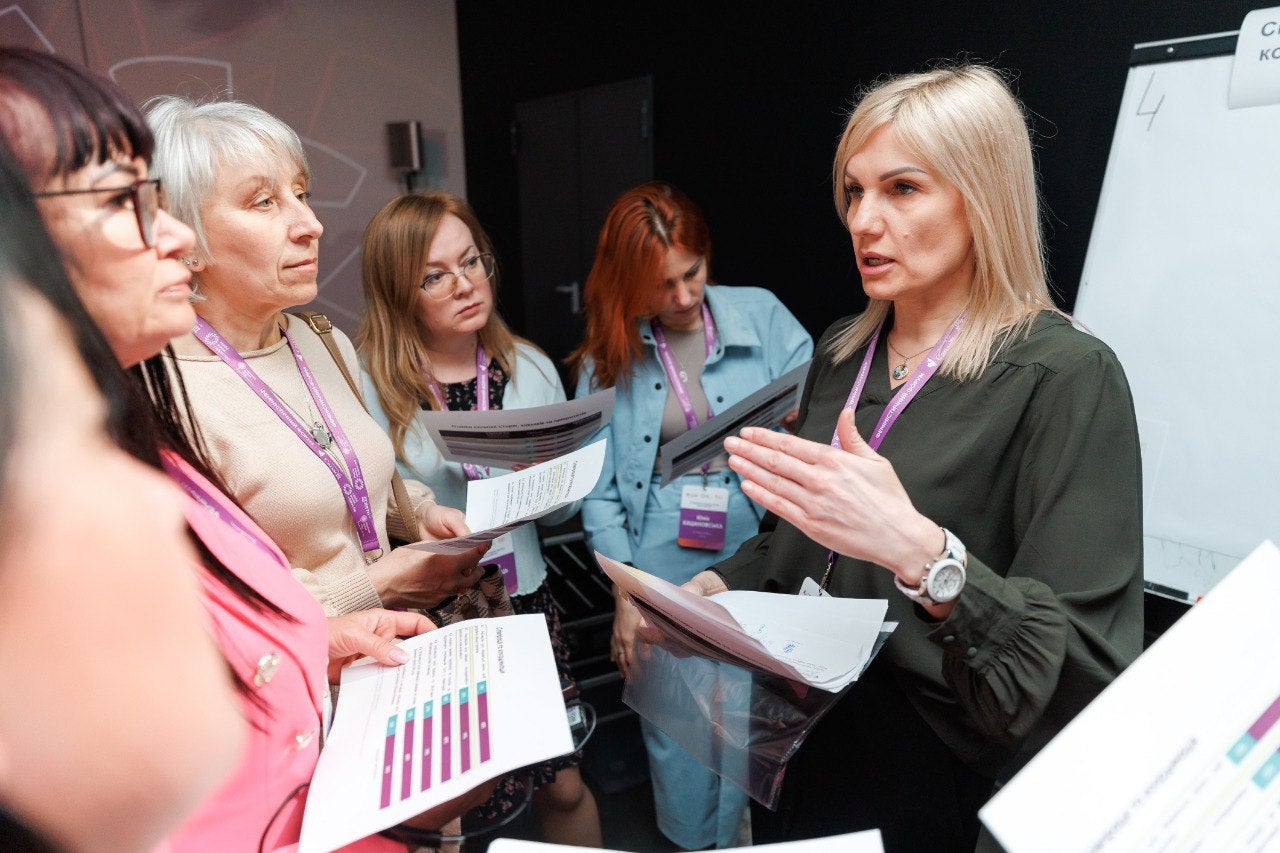Olena Stryzhak: “I wanted to support women living with HIV and protect their rights, because I know from my own experience what stigma and discrimination are.”
Date:

Olena Stryzhak is the Head of the Board of the NGO “Positive Women”, an activist and human rights advocate for women living with HIV in Ukraine. In 2000, when she was pregnant, Olena was diagnosed with HIV. But two years later, she became an activist and began helping other HIV-positive women go through this journey more easily.
“We united once as a network of women living with HIV to help women living with HIV. I wanted to support them and protect their rights. After all, I know from my experience that there is still stigma and discrimination against HIV-positive people in our society. We are constantly working to reduce this stigma. But the problem still exists, that's why I am here,” says Olena.
According to Olena, almost 160,000 people living with HIV in Ukraine are currently under medical supervision, and 45% of them are women. However, the real number of HIV-positive women in Ukraine is ten times higher, because not all of them have been diagnosed and know about their HIV status.
“This is the only disease in the world that affects women so widely. Ukraine is one of the top countries in the Eastern Europe and Central Asia region with the highest proportion of women living with HIV. We need to identify these women and engage them in treatment that can help them live happy and fulfilling lives,” she says.
Olena adds that Ukraine's funding for the procurement and supply of antiretroviral therapy from the state is decreasing every year: “Before the full-scale Russian invasion, the government was responsible for procurement for the treatment of HIV-positive people. But now antiretroviral therapy is provided only at the expense of international donors, because all state funds are used for the defense of the country during the war.”
Until February 24, 2022, the mandate of the NGO “Positive Women” was mainly aimed at advocating for HIV-positive women's access to sexual and reproductive health services, protecting their rights and overcoming stigma and discrimination. But after the beginning of the full-scale war, the organization expanded its activities: “We started to help not only women living with HIV, but also displaced women, elderly women, women with disabilities, and those who take care of families with many children.”
Despite the fact that the women approached the organization with various requests, the main issues were access to antiretroviral therapy, prevention of mother-to-child transmission of HIV, and basic needs such as food, water, formula for children, hygiene products, and a temporary place to stay. So Olena and her colleagues have devoted all their efforts to providing these services to women with children.
For more than two weeks after the start of Russia's full-scale invasion of Ukraine, the Positive Women team worked remotely with each other. Representatives of the organization were in almost all regions of the country, collecting information about what kind of help women in the community needed on the ground - who needed antiretroviral therapy, who needed support as internally displaced persons, evacuation, etc.

Olena and Positive Women started working with UN Women long before the military actions in Ukraine, receiving funding from the Global Fund to Fight AIDS, Tuberculosis and Malaria. Together we managed to organize joint events and activities that focused on the needs of women living with HIV. At that time, NGO “Positive Women” had a strong coverage and offices in different regions, which allowed it to engage in advocacy and protect the rights of HIV-positive women throughout Ukraine. However, with the outbreak of full-scale war, funding became lacking.
“I realized that something had to be done, because the number of needs was growing, especially among HIV-positive women. I joined an online meeting in New York, coordinated by UN Women, which brought together representatives of women's NGOs, and was able to talk about these needs,” Olena says.
A few days after the event, Olena saw that the Women's Peace and Humanitarian Fund (WPHF) was launching a call for applications to support projects that help HIV-positive women. The team of the NGO “Positive Women” started working on the application without delay and submitted it: “We really wanted to do something, not sit still. At that time, we already knew what we needed, and eventually we received funding from WPHF to set up shelters for women and their children.”
Later, the organization began to open temporary shelters in the western regions of the country. These were shelters for women who wanted to stay overnight in safe conditions and then travel abroad, as well as for women who did not plan to leave Ukraine but still needed a place to stay.
“We had our expertise and our structure to meet the needs of those women who needed help, so we started looking for new opportunities, and we were heard and supported,” says Olena.
NGO “Positive Women” continued to cooperate with UN Women as part of new funding from the UN Women's Peace and Humanitarian Fund for projects aimed at researching and creating an advocacy action plan for the community. Thus, almost three years later, advocacy has once again become one of the main areas of the organization's work.
“The achievements and results of our team's work give us the strength to move forward and continue to help women in need.”